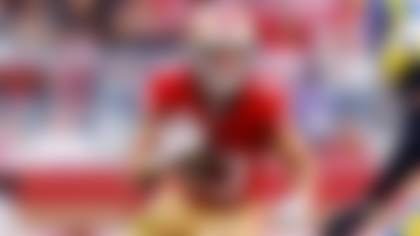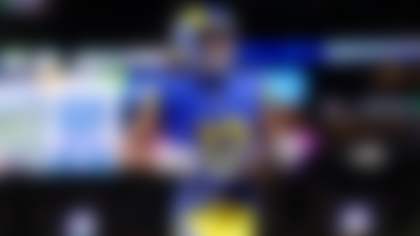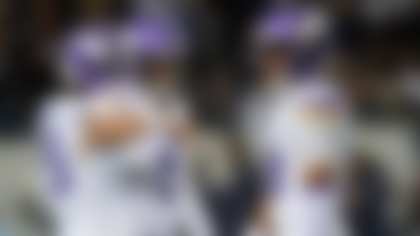By Bill Bradley, contributing editor
All levels of football are attempting to do a better job at spotting concussions. The University of Michigan, for instance, came under fire for not noticing quarterback Shane Morris showing signs of dizziness after a hit. He was diagnosed with a concussion the next day.
Along with adding independent neurologist on the sidelines, the NFL has tried to avoid such situations by adding an "eye in the sky." The program, which is in its third season, has placed a spotter in the press box, who is in constant contact with the sideline medical personnel during NFL games.
The spotter watches for players who might have suffered an injury. Their room is equipped with video equipment run by a technician, allowing them to quickly see multiple replays to spot injuries.
Kansas City Chiefs physician Dr. Michael Monaco and athletic trainer Rick Burkholder talked about the program in an email interview with NFL Evolution about the eye in the sky program. They discussed the process and how they believe it has become invaluable in spotting injuries during a game.
With the program entering its third season, how did it evolve?
Rick Burkholder: It is the NFL's idea, which I love. It came about from a few incidents where an athletic trainer and physician were attending to an injured player on the sideline and a player got hit on the field and the ATC (Athletic Trainer, Certified) and team physician did not see it.
Is there a consistent person (or persons) who does the job at Kansas City Chiefs home games?
RB: Yes, there are two ATCs. They were both already working for the Chiefs when I got to Kansas City. They are both very skilled.
Michael Monaco: ... One of them I have known for over 20 years as he provided sports rehab for several of my patients for many years.
What are the baseline qualifications for this independent person?
MM: The NFL injury spotters must be certified athletic trainers with football experience.**
Does this person do any pre-game preparation?
MM: My interaction with the spotter is pre-game on the sidelines to make sure that I know who is up there and that we know where the equipment is and how to contact them the most efficiently.
Is there anything special about where he works in the press box? How much access to replay reviews does he or she have?
MM: I know that they have access to all plays on a 6-second delay and that there are several camera angles to view each play to ensure that the "mechanism of injury" can be seen more clearly.
How does the process work during a game?
MM: Before each game, the team physicians are introduced to the "NFL Spotter" on the sidelines during warm ups for the players. They make sure that we know where our equipment is located and which system, phone or headset works best for us to communicate with them. During the games, the spotter will generally call down to our athletic trainer of a potential injury to make sure that we are already aware. The player is then pulled and evaluated to ensure that they are doing medically "okay."
How does his work relate to the sideline communications center?
RB: Very well. The spotter will call on the sideline communications center and then someone will get me. I will look at the video. I will often grab my team physician to do the same. I will check the player with my physician and then report back to the spotter to let them know.
MM: The replay screen that we use to review plays and communication portal for us is located at the center of our home sideline in the "communications center." To contact them to ask for them to "cue Up a play," or to respond to their call, we go to the communications center under the vinyl hood.
What is the future of this program? Do you see it evolving in the future?
RB: I think it is here to stay and I am glad. It is an incredibly useful program.
MM: It is reassuring to know that there is a second set of eyes on our players to make sure that they are kept safe. It has worked well so far from my perspective, and the ATCs that I have been introduced to have been personable and great to work with. The spotters' focus is on concussions, however, they are able to see all injuries from a greater vantage point from the booth above. Expanding their role in overall injury surveillance has great potential.



